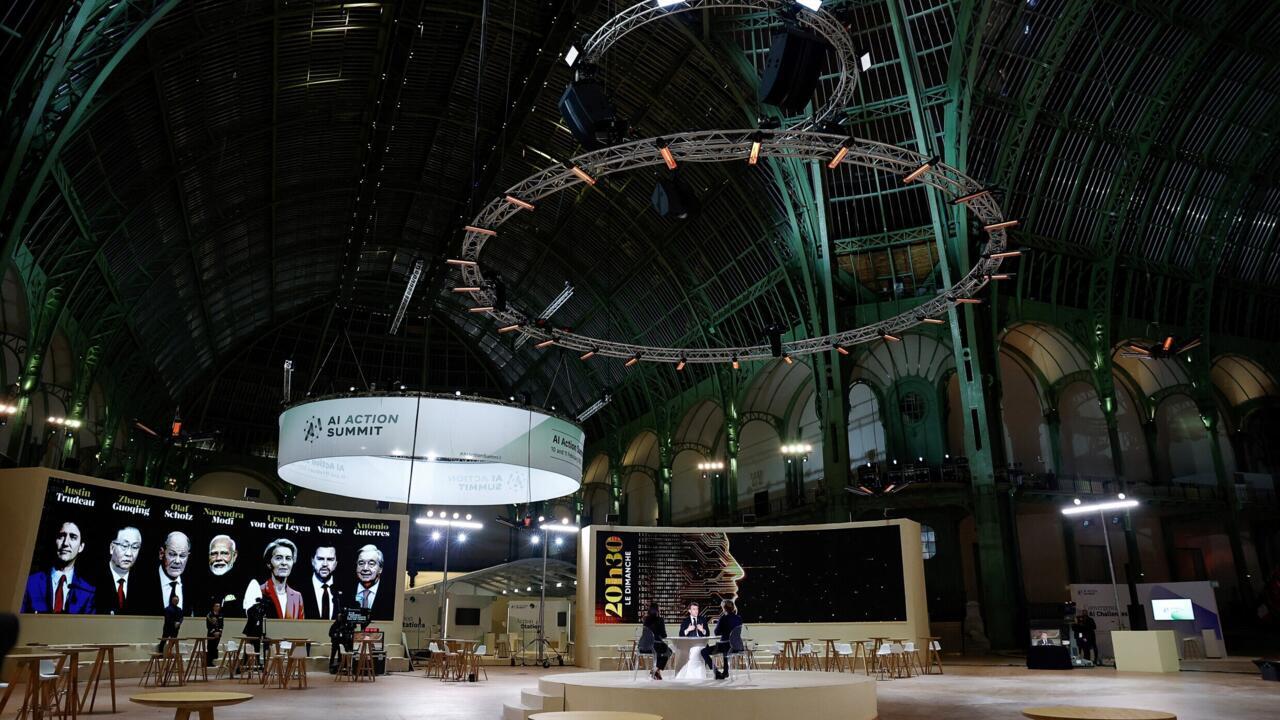News Flash
News Flash

PARIS, Feb 10, 2025 (BSS/AFP) - Political and tech industry leaders descended
on Paris Monday for a two-day summit on artificial intelligence, hoping to
find common ground on the revolutionary technology set to remake business and
society across the world.
Co-hosted by French President Emmanuel Macron and Indian Prime Minister
Narendra Modi, the summit aims to lay the groundwork for governing the
nascent sector, as global powers race to play leading roles in the fast-
developing technology.
Monday's meeting of around 1,500 guests in the French capital's opulent Grand
Palais will feature lectures and panel discussions outlining the promises of
and challenges posed by AI.
Political leaders, including US Vice President JD Vance and Chinese Vice
Premier Zhang Guoqing, are set to rub shoulders with the likes of OpenAI boss
Sam Altman and Google chief Sundar Pichai.
A largely suit-wearing crowd of men and women speaking languages from all
over the world gathered under the glass-and-steel dome of the great hall,
built for the 1900 Universal Exhibition.
Selected companies, academics and non-profit groups were showing off their
work with AI at stands around the cavernous space decked out with screens and
geodesic domes.
Two years on from the emergence of OpenAI's ChatGPT chatbot, able to respond
to all kinds of natural-language prompts, "artificial intelligence fuels both
immense hopes and, at times, exaggerated fear," Macron's AI envoy Anne
Bouverot told guests as she opened the summit.
She promised a "turning point" that would bring more countries on board with
AI development that until now has been restricted to a few advanced
economies.
Also on the agenda is "sustainable development" of the resource- and energy-
hungry technology.
"We know that AI can help mitigate climate change, but we also know that its
current trajectory is unsustainable," Bouverot said.
- 'Stargate' sets the pace -
Macron had on Sunday trumpeted the benefits of artificial intelligence and
French efforts in the field.
In a TV interview, he announced "109 billion euros ($113 billion) of
investment in artificial intelligence in the coming years" in France.
That was "the equivalent for France of what the US has announced with
'Stargate'," the $500-billion US programme led by ChatGPT maker OpenAI, he
added.
The technical challenges and price of entry for nations hoping to keep
abreast in the AI race have become clearer in recent weeks.
Chinese startup DeepSeek stunned Silicon Valley heavyweights with its low-
cost, high-performance AI models.
In the United States, President Donald Trump lent the aura of his office to
the "Stargate" project to build computing infrastructure such as data
centres.
These vast buildings concentrate in one place the data storage and processing
power needed to develop and run the most advanced AI models.
"Europe has to find a way to take a position, take some initiative and take
back control," said Sylvain Duranton of the Boston Consulting Group.
European Commission chief Ursula von der Leyen is expected to announce around
10 public supercomputers designed for use by researchers and startups while
attending the summit.
- Global governance puzzle -
Away from the investment grandstanding, a group of countries, companies and
philanthropic organisations said Sunday they would pump $400 million into a
partnership called "Current AI" that would foster "public interest"
approaches to the technology.
Current AI aims to raise as much as $2.5 billion for its mission to grant AI
developers access to more data, offer open-source tools and infrastructure
for programmers to build on, and "develop systems to measure AI's social and
environmental impact".
"We've seen the harms of unchecked tech development and the transformative
potential it holds when aligned with the public interest," Current AI founder
Martin Tisne said.
On Tuesday, political leaders from around 100 countries will hold a plenary
session, with notable attendees including Modi, Vance, Zhang and Von der
Leyen.
France hopes governments will agree on voluntary commitments to make AI
sustainable and environmentally friendly.
But any agreement may prove elusive between blocs as diverse as the European
Union, United States, China and India, each with different priorities in tech
development and regulation.